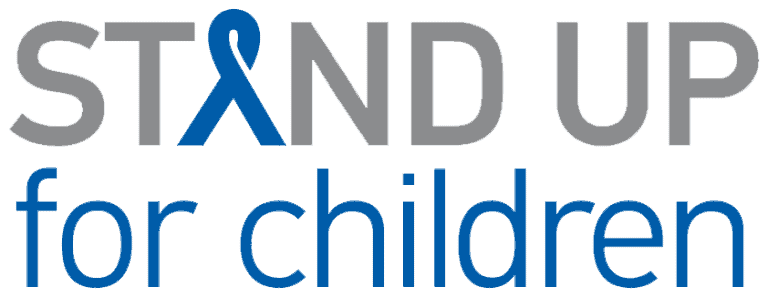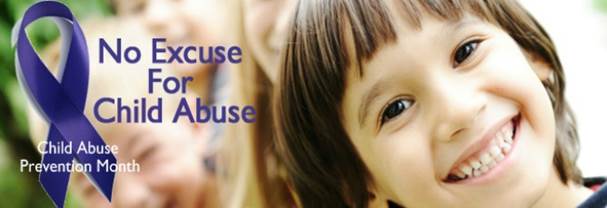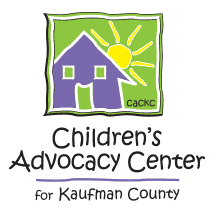

April is Child Abuse Prevention month...
Here are some practical ways you can STAND UP for the children in your life.
Be Informed
The best outcome for any child growing up is to reach maturity without the burden of experiencing child abuse. CACKC offers a variety of educational programs that teach children and adults to understand the risks of abuse.
Our goal is to teach how to:
- recognize the symptoms
- report the abuse
Abuse can occur in the home, the community or the internet.
Signs and Symptoms
The signs and symptoms of child abuse are not always obvious especially in cases of child sexual abuse. Often children have been threatened or confused by their abuser not to disclose the abuse. The guidelines listed below are general signs and symptoms and if you notice these in your child you should ask them if anything has happened.
New Fears
An abused child or teenager may develop new fears of situations, places, or people. They may become excessively shy, anxious, scared or withdrawn.
Anger/Hostility
If a child or teen is not allowed or able to express anger towards the abuser, they may take their anger out on others or against themselves.
Inappropriate Sexual Behaviors
A child may act out sexually. They may show an unusual interest in other people's or animal’s genitals, or masturbate excessively. They may try to express affection in an inappropriate way, such as fondling private parts. Teens may participate in risky sexual behavior and make inappropriate advances in public.
Sleeping and Eating Problems
A child or teen may have problems sleeping, nightmares, sudden loss or gain in appetite. Children may regress in their development. A child might return to younger, more babyish behavior such as wetting the bed or thumb sucking.
School Problems
A child or teen may have difficulty concentrating which can affect school performance. A change in grades or behavior at school is not uncommon.
Loss of Boundaries
A child or teen may be overly friendly and attached to total strangers, they may tolerate abuse from other children, they may become excessively isolated and withdrawn, or they may become overly obedient.
Self-Destructive Acts
A child or teen may feel such guilt and shame from the abuse that they may take their feelings out by hurting themselves. This may involve hitting or cutting themselves, using drugs and/or alcohol or even a suicide attempt. As teens that were abused as children mature, it is common for issues of abuse to resurface requiring additional or new services.
Reporting Child Abuse
In the State of Texas, law requires that ANYONE “having cause to believe that a child’s physical, mental health or welfare has been or may be adversely affected by abuse or neglect” MUST report the cause immediately. Failure to report child abuse is a misdemeanor punishable by up to 180 days and/or a fine of up to $2000. – Texas Family Code, Chapter 261
You can make a report by calling 1-800-252-5400
or you can make a report on-line at www.txabusehotline.org
If you feel that a child is in immediate danger, call 911.
Steps to Prevention
- Listen to your child: Talking with your child and listening to what he or she has to say is the first step in preventing abuse.
- Know those that have contact with your child: Most abusers are someone the child or family knows and trusts.
- Avoid one adult/one child situations: Drop-in on situations where your child may be alone with another adult (even close family members).
- Monitor your child’s Internet and cell phone use: Offenders often use the web and text messaging to lure them into physical contact.
- Ask for help: Curb stressful situations by asking for help. Also, ask for help when children are left in your care.
- Educate your child: Teach your child about their body and the difference between appropriate and inappropriate touches. They should also know that inappropriate touches could occur with strangers, a family member, adult friend or an older youth. Teach your child that it is okay to tell another safe adult.
One with Courage
Child sexual abuse is a crime of secrecy which, sadly, breeds within our society because it is difficult to talk about.
One With Courage is a public awareness campaign centered around the courage it takes to talk about child sexual abuse - the courage it takes child victims to come forward and talk about their abuse, and the courage it takes adults to talk about the issue, and to learn the signs and recognize abuse.
The goal of this campaign is to educate the general public about the signs of sexual abuse, dispel generally accepted "myths" about the issue, and create awareness of the role children's advocacy centers play in providing services to child victims and their families. We strongly believe that child sexual abuse can be eliminated within our society through formation of informed, empowered communities
The campaign consists of the following core components:
- Television public service announcements in English and Spanish aired on cable television
- Digital public service announcements to be placed on internet media outlets
- A "micro website" www.onewithcourage.org provides information and materials.
The "One With Courage" campaign is a powerful step forward in that fight.
Please visit www.onewithcourage.org/learn-the-signs/
Click Here to read attorney general, Greg Abbott's, comments on One with Courage.
Other Resources:
Children's Advocacy Centers of Texas
Texas Department of Family and Protective Services

